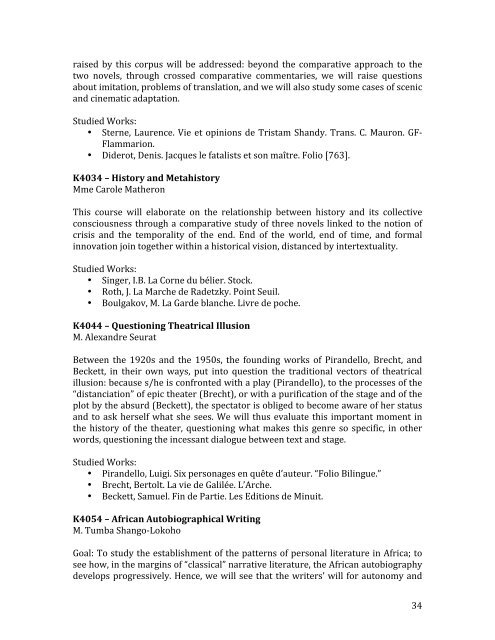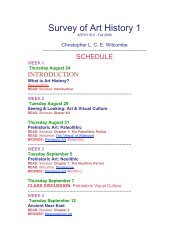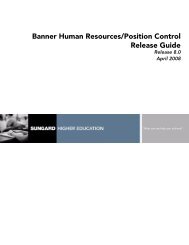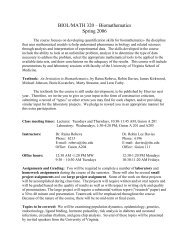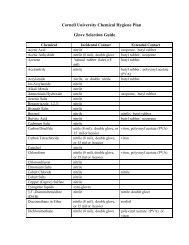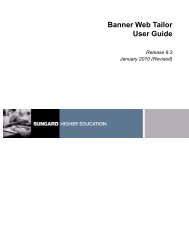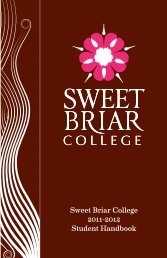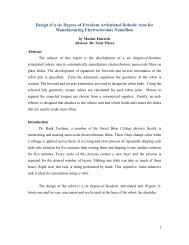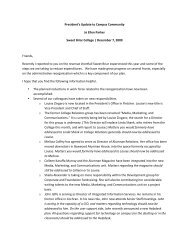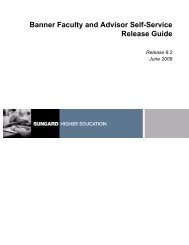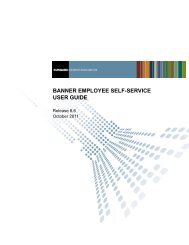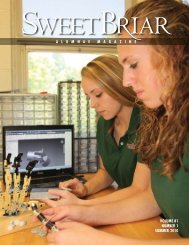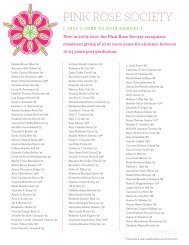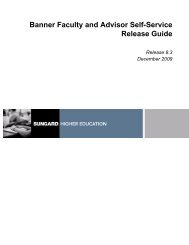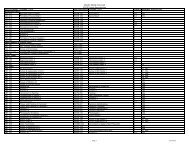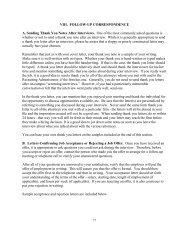Brochure - English translations of course offerings
Brochure - English translations of course offerings
Brochure - English translations of course offerings
Create successful ePaper yourself
Turn your PDF publications into a flip-book with our unique Google optimized e-Paper software.
aised by this corpus will be addressed: beyond the comparative approach to the <br />
two novels, through crossed comparative commentaries, we will raise questions <br />
about imitation, problems <strong>of</strong> translation, and we will also study some cases <strong>of</strong> scenic <br />
and cinematic adaptation. <br />
Studied Works: <br />
• Sterne, Laurence. Vie et opinions de Tristam Shandy. Trans. C. Mauron. GF-‐<br />
Flammarion. <br />
• Diderot, Denis. Jacques le fatalists et son maître. Folio [763]. <br />
K4034 – History and Metahistory <br />
Mme Carole Matheron <br />
This <strong>course</strong> will elaborate on the relationship between history and its collective <br />
consciousness through a comparative study <strong>of</strong> three novels linked to the notion <strong>of</strong> <br />
crisis and the temporality <strong>of</strong> the end. End <strong>of</strong> the world, end <strong>of</strong> time, and formal <br />
innovation join together within a historical vision, distanced by intertextuality. <br />
Studied Works: <br />
• Singer, I.B. La Corne du bélier. Stock. <br />
• Roth, J. La Marche de Radetzky. Point Seuil. <br />
• Boulgakov, M. La Garde blanche. Livre de poche. <br />
K4044 – Questioning Theatrical Illusion <br />
M. Alexandre Seurat <br />
Between the 1920s and the 1950s, the founding works <strong>of</strong> Pirandello, Brecht, and <br />
Beckett, in their own ways, put into question the traditional vectors <strong>of</strong> theatrical <br />
illusion: because s/he is confronted with a play (Pirandello), to the processes <strong>of</strong> the <br />
“distanciation” <strong>of</strong> epic theater (Brecht), or with a purification <strong>of</strong> the stage and <strong>of</strong> the <br />
plot by the absurd (Beckett), the spectator is obliged to become aware <strong>of</strong> her status <br />
and to ask herself what she sees. We will thus evaluate this important moment in <br />
the history <strong>of</strong> the theater, questioning what makes this genre so specific, in other <br />
words, questioning the incessant dialogue between text and stage. <br />
Studied Works: <br />
• Pirandello, Luigi. Six personages en quête d’auteur. “Folio Bilingue.” <br />
• Brecht, Bertolt. La vie de Galilée. L’Arche. <br />
• Beckett, Samuel. Fin de Partie. Les Editions de Minuit. <br />
K4054 – African Autobiographical Writing <br />
M. Tumba Shango-‐Lokoho <br />
Goal: To study the establishment <strong>of</strong> the patterns <strong>of</strong> personal literature in Africa; to <br />
see how, in the margins <strong>of</strong> “classical” narrative literature, the African autobiography <br />
develops progressively. Hence, we will see that the writers’ will for autonomy and <br />
<br />
34


